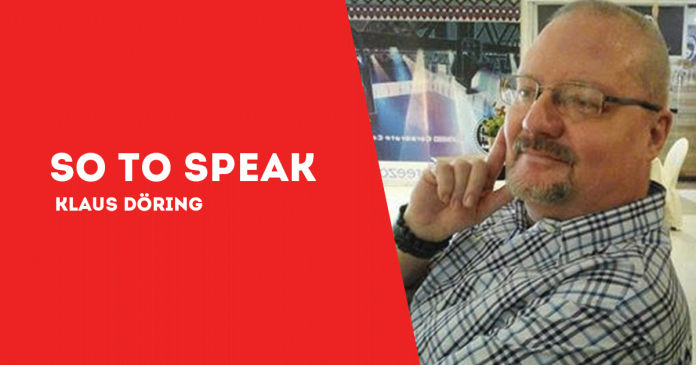
BY KLAUS DÖRING
MANY of us believe perfectionism is a positive. You may count me in.
More often than I’d like to admit, something seemingly inconsequential will cause the same feeling to rear its head again. Something as small as accidentally squashing the makeup I was bringing my first girlfriend’s family for Christmas can tumble around in my mind for several days, accompanied by occasional voices like “How stupid!” and “You should have known better”.
Falling short of a bigger goal, even when I know achieving it would be near-impossible, can temporarily flatten me. When a former agent told me that she knew I was going to write a book someday but that the particular idea I’d pitched her didn’t suit the market, I felt deflated in a gut-punching way that went beyond disappointment. The negative drowned out the positive. “You’re never going to write a book,” my internal voice said. “You’re not good enough.” That voice didn’t care that this directly contradicted what the agent actually said.Now I finished my first book in 2022.
That’s the thing about perfectionism. It takes no prisoners.
The rise in perfectionism doesn’t mean each generation is becoming more accomplished. It means we’re getting sicker, sadder and even undermining our own potential.
Here is another great example: a perfectionist, French Claude Monet often destroyed his paintings in a temper while saying, ‘My life has been nothing but a failure’.
Perfectionism, after all, is an ultimately self-defeating way to move through the world. It is built on an excruciating irony: making, and admitting, mistakes is a necessary part of growing and learning and being human. It also makes you better at your career and relationships and life in general. By avoiding mistakes at any cost, a perfectionist can make it harder to reach their own lofty goals.
Culturally, I learned, we often see perfectionism as a positive. Even saying you have perfectionistically tendencies can come off as a coy compliment to yourself; it’s practically a stock answer to the “What’s your worst trait?” question in job interviews. (Past employers, now you know! I wasn’t just being cute).
It is difficult to tell who is motivated and conscientious and who is a perfectionist. In my daily teaching at Ateneo de Davao University , I meet a student who works hard and gets a poor mark. If she/her tells herself: “I’m disappointed, but it’s okay; I’m still a good person overall,” that’s healthy. If the message is: “I’m a failure. I’m not good enough,” that’s perfectionism.
That inner voice criticises different things for different people – work, relationships, tidiness, fitness. My own tendencies may differ greatly from somebody else’s. It can take someone who knows me well to pick up on them. (When I messaged one of my friends I was writing this story, he immediately sent back a long line of laughing emojis).
Fear of failure is getting magnified in other ways, too. Take social media: make a mistake today and your fear that it might be broadcast, even globally, is hardly irrational. At the same time, all of those glossy feeds reinforce unrealistic standards.
In my opinion, and I am not alone with it, it’s the idea that you don’t have to be perfect to be lovable or to be loved. It’s a work in progress. And, what I’ve noticed too, is that, each time I’m able to replace criticizing and perfecting with compassion, I feel not only less stressed, but freer. Apparently, that’s not unusual.
How about you, my dear readers?
***
Email: doringklaus@gmail.com or follow me on Facebook, LinkedIn and Twitter or visit my www.germanexpatinthephilippines.blogspot.com or www.klausdoringsclassicalmusic.blogspot.com./PN

